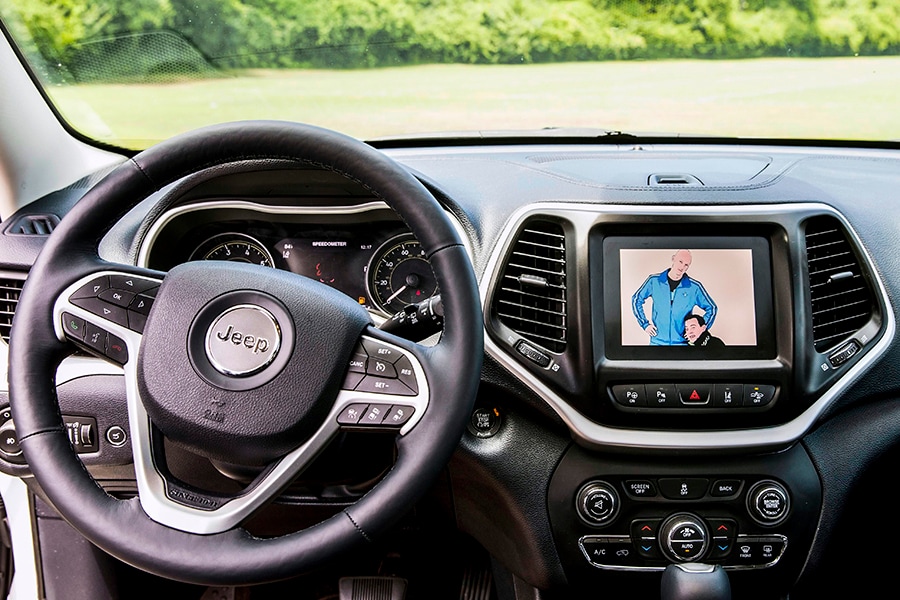
Carmakers strive to stay ahead of hackers
A hacker could steal a driver's personal data or eavesdrop on phone conversations while nefarious codes inserted into one of a vehicle's electronic control units could cause it to suddenly speed up, shut down or lose braking power.
 FILE — An image depicting security researchers Charlie Miller, left, and Chris Valasek is displayed on the screen in a Jeep Cherokee in Ladue, Mo., on July 23, 2015, after the pair hacked into the vehicle's electronic control units. Jeep’s parent company, FCA, recalled 1.4 million vehicles to fix the vulnerability.
FILE — An image depicting security researchers Charlie Miller, left, and Chris Valasek is displayed on the screen in a Jeep Cherokee in Ladue, Mo., on July 23, 2015, after the pair hacked into the vehicle's electronic control units. Jeep’s parent company, FCA, recalled 1.4 million vehicles to fix the vulnerability.
Image: Whitney Curtis/The New York Times
In your garage or driveway sits a machine with more lines of code than a modern passenger jet. Today’s cars and trucks with an internet link can report the weather, pay for gas, find a parking spot, route around traffic jams and tune in to radio stations from around the world. Soon they will speak to one another and alert you to sales as you pass your favorite stores, and one day they will even drive themselves.
While consumers may love the features, hackers may love them even more. And that is keeping many in the auto industry awake at night, worried about how they can stay one step (or two or three) ahead of those who could eventually wreak havoc with the world’s private transport systems.
Hackers seemingly cannot wait for the opportunity to commandeer vehicles. In 2019, automotive cybersecurity company Karamba Security posted a fake vehicle electronic control unit online. In less than three days, 25,000 breach attempts were made, and one succeeded.
The best-known vehicle takeover occurred in 2015 when security researchers on a laptop 10 miles away caused a Jeep Cherokee to lose power, change its radio station, turn on the windshield wipers and blast cold air. Jeep’s parent company, FCA, recalled 1.4 million vehicles to fix the vulnerability.
Today, the effects of a breach could range from mildly annoying to catastrophic. A hacker could steal a driver’s personal data or eavesdrop on phone conversations. Nefarious code inserted into one of a vehicle’s electronic control units could cause it to suddenly speed up, shut down or lose braking power.
A fleet of cars could be commandeered and made to steer erratically, potentially causing a major accident. A hacked electric vehicle could shut down the power grid once the car was charging. Even altering a street sign in ways imperceptible to the eye can trick a car into misperceiving a stop sign as a speed limit sign.
©2019 New York Times News Service




